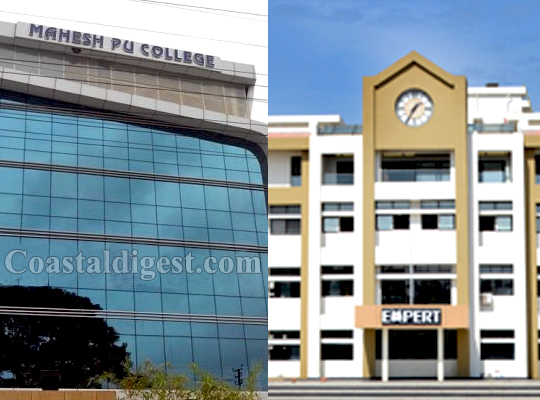Mangaluru, Apr 16: Two prominent Mangaluru based Pre-University colleges that are known for producing' rank students and state toppers' have been raided by the Criminal Investigation Department (CID) officials in connection with the II PU chemistry paper leakage case.
The CID officials raided Expert PU College and Mahesh PU College of Mangaluru on Friday.
Apart from these two prestigious institutions, nine more private colleges across Karnataka including six in Bengaluru alone, were also raided on Friday.
The other colleges raided include Narayana PU College in Ballari and Vidyaranyapura in Bengaluru; Sri Chaitanya PU College in Vidyaranyapura and Ballari; Deeksha Integrated in Yelahanka and Tumakuru; Presidency College in Kempapura; Brindavan College in Sanjay Nagar; Royal Concorde in Kalyan Nagar.
According to reliable sources, during the raids the officials recovered incriminating documents that link the colleges to the Pre-Univesity chemistry paper leakage.
The raids were carried out based on the information provided by the three accused — K.M. Muralidhar, Anil Kumar and K.S. Ranganath — who were arrested on April 13. They told investigators that they shared the question papers and key answers with the management of the colleges, who in turn passed the information on to “select students”
CID officials suspect that more colleges are involved in the question paper leak racket and that the 11 colleges are just the tip of the iceberg. No arrests have been made so far as the police are verifying the seized documents.
Sources said the prime accused, Shivakumar, and his son, Dinesh, who are on the run might have more links with the colleges and tutorials across the State.







Comments
i knew this long ago.
Hahaha. Leakage is the secret of Rank Energy.
Pagination
Add new comment